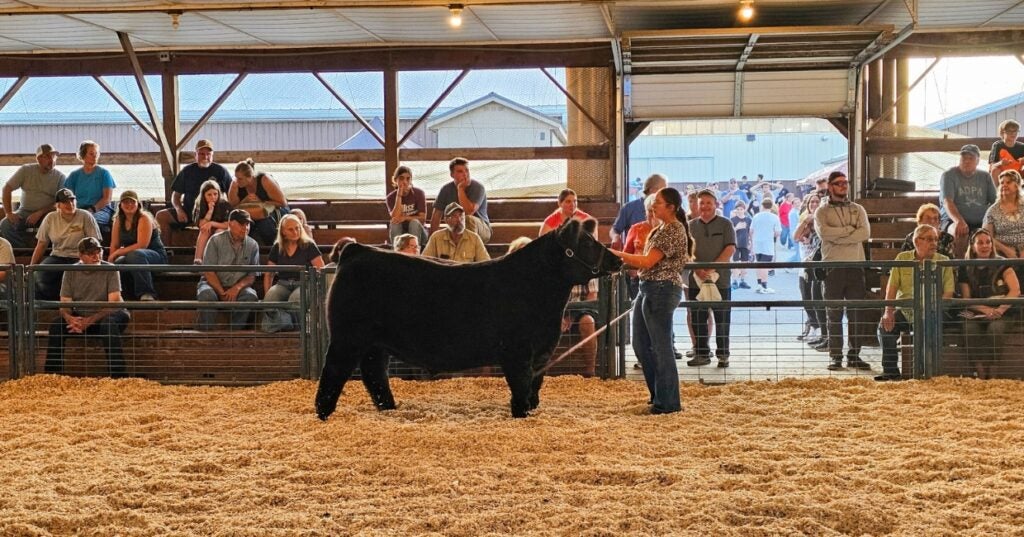Penn Vet Launches New Course One Health and Climate Change

The School of Veterinary Medicine at the University of Pennsylvania (Penn Vet) has launched a new course, One Health and Climate Change, directed by Penn Vet’s Erick Gagne, PhD, and Elizabeth Woodward, PhD, and the Perelman School of Medicine’s Hillary Nelson, PhD, MPH, and offered in partnership with the Master of Public Health program. One Health is an interdisciplinary model that seeks to advance the health of animals, humans, and the environment by recognizing their shared connections.
Wildlife habitats, domestic animals, food production, humans, and the environment, are all inextricably linked through One Health. A compromised environment is often a contributing factor to the spillover of viruses or other pathogens from animals to humans. Toxic minerals, chemicals, soil destruction, and extreme climate events, erode the health of natural habitats for animal populations, and disproportionally impact vulnerable human populations. This course examines the scope of adverse climate impacts – and how to combat those impacts – on the health outcomes of humans, animals, and the environment.
Through in-person classes and asynchronous lectures and assignments, learners:
- Identify the intersections between the issues surrounding global heating and animals, agriculture, and public health.
- Determine the role of health professionals in mitigating negative climate impacts on animal, human, and environmental health.
- Identify solutions and develop a plan of action to respond to climate driven health effects.
Fourteen students pursuing graduate degrees in veterinary medicine and public health are enrolled in this first iteration of the eight-week course. Eleven faculty and lecturers are covering a range of topics including antimicrobial resistance, emerging diseases, individual human health, climate resilient communities, agricultural solutions, and ecosystem health. The course uses innovative hands-on activities, like tabletop exercises on a One Health disease outbreak, a studio activity on urban landscaping, and a stakeholder debate on climate change regulations. Students will integrate course insights and share learnings through a final capstone presentation, where they will present a plan of action about climate change that they can apply in their professional setting.
“One Health is an empowering problem-solving framework,” said Penn Vet’s Associate Dean for One Health, Jenni Punt, VMD, PhD. “Unfortunately, there is no singular solution to global heating. Our course One Health and Climate Change is urging an approach to climate adaptation that prioritizes interdisciplinary collaboration. I want to thank the course directors, Drs. Gagne, Woodward, and Nelson, and the course faculty, for their commitment and participation in making this course such a success for our students, and for the broader One Health community here at Penn.”
The One Health and Climate Change course advances the University’s In Principle and Practice and it is emblematic of Penn’s commitment to One Health as a framework for education, action, and problem-solving.
Related News

New Bolton Center Surgeons Come Through for Howee the Steer and his Girl
Mallie Touchton was always a farm animal kid. Since she was 8, Mallie was raising and showing her own market livestock – pigs, goats, and dairy calves. Even though she…

Wild birds are driving the current U.S. bird flu outbreak (link is external)
Since late 2021, a panzootic, or “a pandemic in animals,” of highly pathogenic bird flu variant H5N1 has devastated wild birds, agriculture, and mammals.
About Penn Vet
Ranked among the top ten veterinary schools worldwide, the University of Pennsylvania School of Veterinary Medicine (Penn Vet) is a global leader in veterinary education, research, and clinical care. Founded in 1884, Penn Vet is the first veterinary school developed in association with a medical school. The school is a proud member of the One Health initiative, linking human, animal, and environmental health.
Penn Vet serves a diverse population of animals at its two campuses, which include extensive diagnostic and research laboratories. Ryan Hospital in Philadelphia provides care for dogs, cats, and other domestic/companion animals, handling more than 30,000 patient visits a year. New Bolton Center, Penn Vet’s large-animal hospital on nearly 700 acres in rural Kennett Square, PA, cares for horses and livestock/farm animals. The hospital handles more than 6,300 patient visits a year, while our Field Services have gone out on more than 5,500 farm service calls, treating some 22,400 patients at local farms. In addition, New Bolton Center’s campus includes a swine center, working dairy, and poultry unit that provide valuable research for the agriculture industry.



